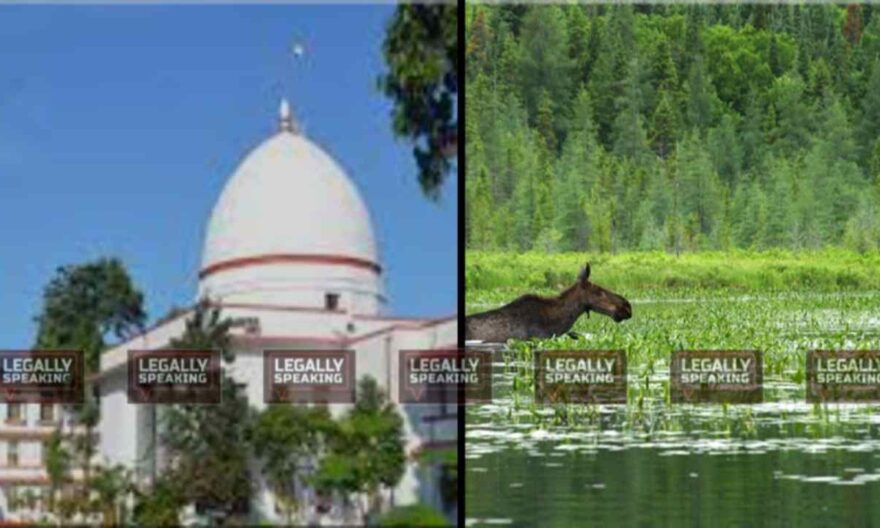
The Gauhati High Court is currently considering a plea challenging eviction proceedings targeting residents of the Silsako wetland area. This case has raised an important question regarding the retroactive application of a law that recognizes the area as a wetland.
The court has called for responses from the Assam government, the Guwahati Municipal Corporation, and the Guwahati Metropolitan Development Authority.
The appellants in the case have expressed concerns about the retrospective implementation of the Guwahati Waterbodies (Preservation and Conservation) Act of 2008.
During a previous hearing on June 6, Chief Justice Sandeep Mehta and Justice Mitali Thakuria expressed their disappointment over the rampant encroachment upon water bodies in Guwahati. They emphasized that such encroachments cannot be allowed, even from a humanitarian standpoint.
Furthermore, Chief Justice Sandeep Mehta highlighted the need to hold accountable officials who had knowingly ignored the problem. He emphasized that these officials should face prosecution for their complicity in the matter. “We cannot be swayed by this, where human beings and their greed for land just eats into the lakes, rivers, water bodies, right left and centre … Officers who connive with them – they should be hauled up for disciplinary proceedings. We are not going to come to the aid of these people, that is for sure. There is no dispute. You have rampantly finished off the lake … For a rank encroacher what kind of notice is required? Can there be any claim of right to encroach on a water body and can the encroacher ask that please give me notice first?”
In response to the counsel’s argument that the term “encroachers” may not be appropriate for those who had been residing on the land for decades, Chief Justice Sandeep Mehta clarified that “We will not term them as settlers, sorry. It is a different matter that officials who had turned a blind eye should be prosecuted, no doubt about that. No human aspect when it comes to encroaching of water bodies, sir. Once it is a water body you have to move out, sir.”
The appellant had approached the court after a single-judge order in March denied a stay on the eviction proceedings. The plea seeks rehabilitation and compensation for more than 700 families affected by the demolition drive conducted in the wetland earlier this year.
The appellants argued that “Would not the rule of estoppel and doctrine of legitimate expectations apply when the State has recognised long physical possession on that land? In a Constitutional and welfare state, during a fight between the right to shelter and the conservation of national resources, the rights of those at the lowest strata have to be balanced when there are alternative policies available for rehabilitation and resettlement.”
The counsel presented documentary evidence, including Aadhaar cards, road connections, and letters from circle officers, to demonstrate the long-established settlement in the area. They asserted that the court should not disregard this evidence.
Chief Justice Sandeep Mehta, in a previous hearing on June 6, commented that even the lake itself, as a living body, has rights that need to be protected. He questioned “Is the right to life only of human beings and not other living beings (like lakes)? Can a letter by circle officer be attributed to the State, is that a recognition of right by the State, sir? When it is leading to virtual extinction of a water body, probably these technicalities will not come in the way, this is our prima facie view … lake is also a living body, has the right to survive.”
The bench expressed concern over the fact that the original revenue records of the lands in question did not indicate their status.
Chief Justice Sandeep Mehta remarked on the situation, stating that it was a “Very sorry state of affairs. The [Waterbodies] Act is not prospective, it [only] declares. I am at a loss for words. In any other State, the category of land is mentioned in the revenue record. There is no need for such Acts, even.”
Advocate Anurag Tiwary appeared on behalf of the appellant, while Advocates R Borpujari, N Das, and S Bora represented the respondents.




